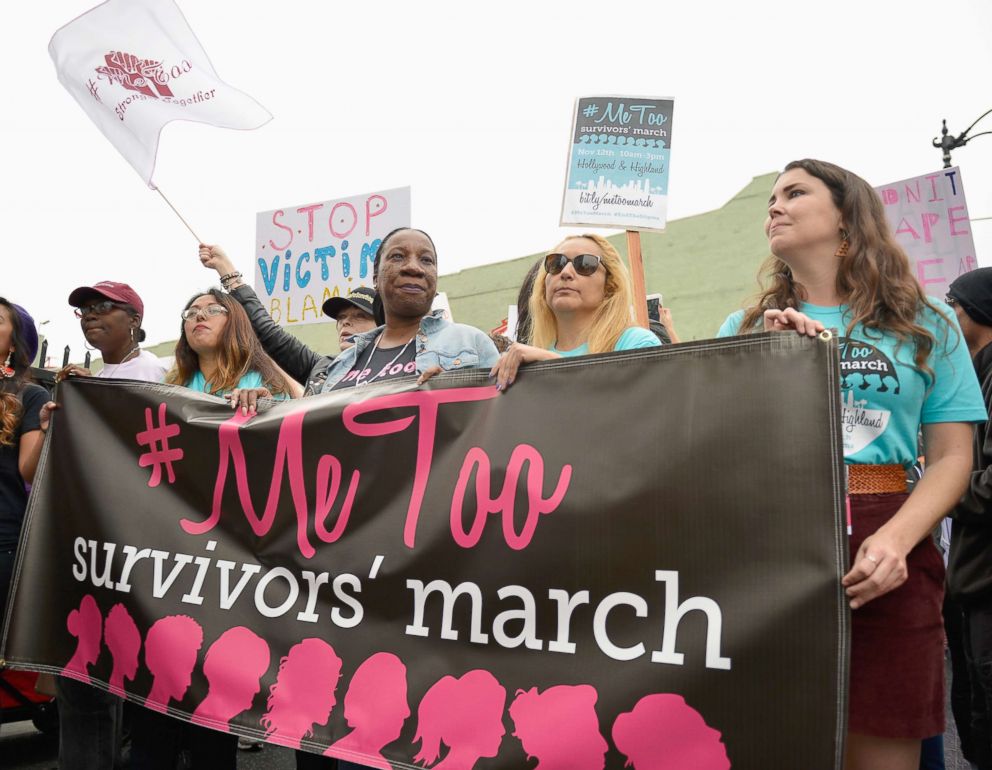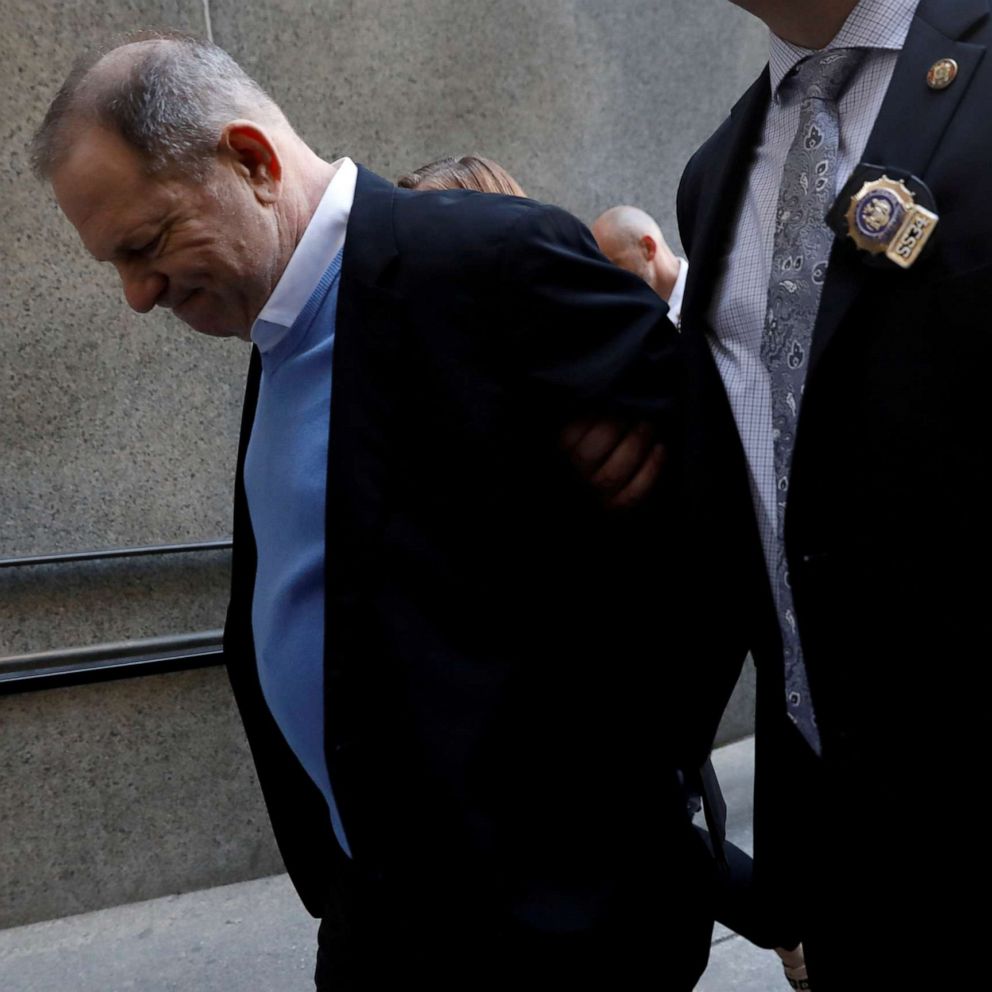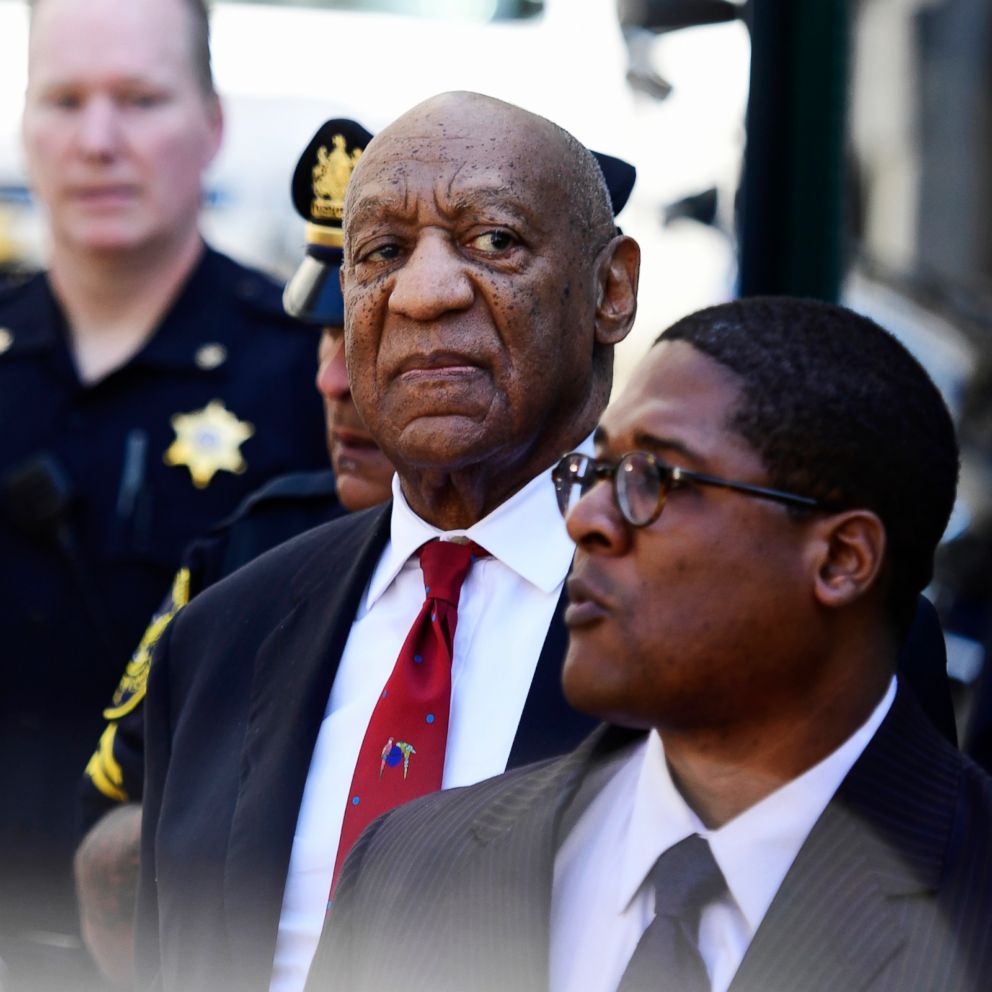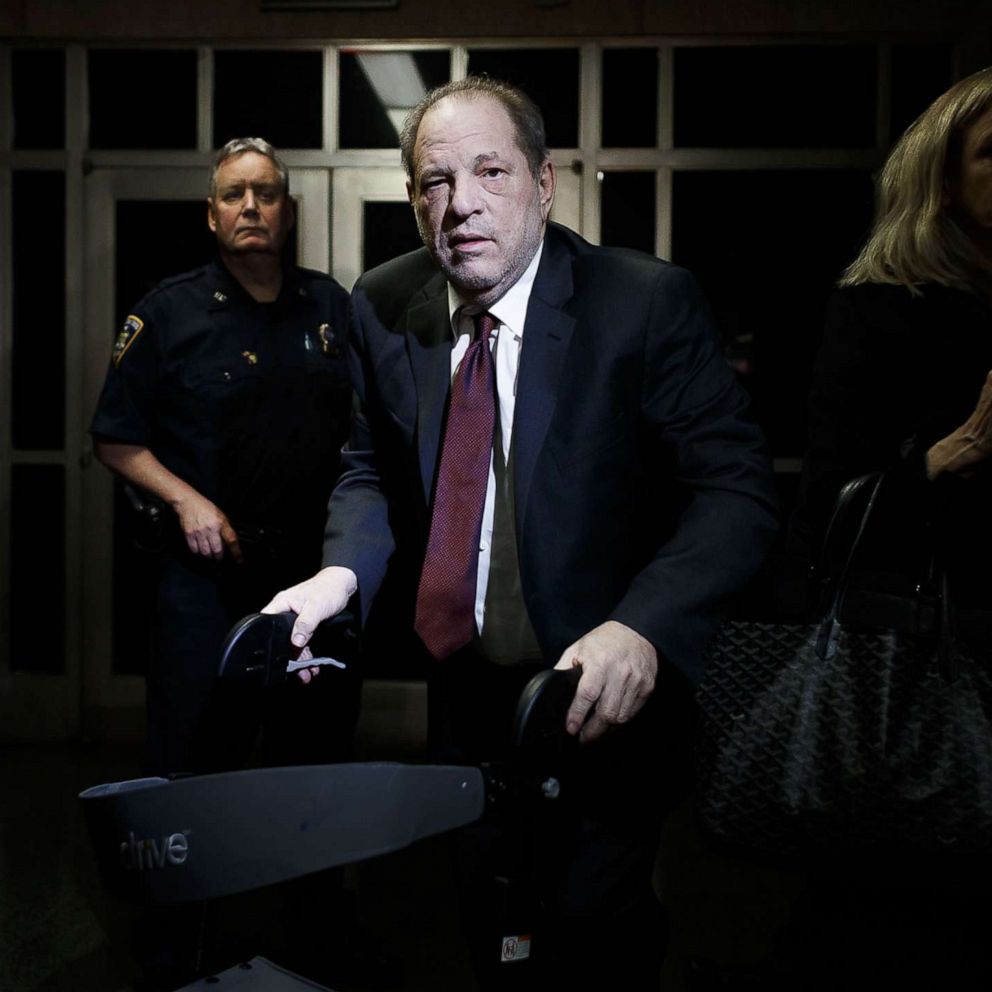After Weinstein sentencing, Tarana Burke on what's next for the #MeToo movement
Burke reflects on the monumental Harvey Weinstein verdict.
When #MeToo founder Tarana Burke heard Harvey Weinstein was convicted of sexual assault and rape, the women's rights activist said she was "shocked" and "relieved."
Burke had prepared herself for the possibility that Weinstein, who was acquitted of charges for predatory sexual assault and of rape in the first degree, would walk out of the courtroom a free man.
After checking in with survivors to make sure they were OK, Burke allowed herself to reflect on the monumental verdict.
"I wasn't disappointed in the sense that I thought that that was going to happen," she told "Good Morning America." "I knew, going in, when you look at the charges, the time that had passed and all these different circumstances, I knew it was going to be difficult."
As the #MeToo movement has gained momentum in the past three years, Burke has seen incredible growth and support from survivors and allies across the nation.
"Being able to scale up the work that we started in small grassroots communities and then the urban communities in Philadelphia -- and rural communities and Alabama, to national and international levels -- is just incredible," she said.
Burke is now hoping to "take advantage of this moment while people are paying attention" to increase activism, create a cultural shift and restructure the way the new generation learns about sexual violence.
What the Weinstein verdict means for survivors
More than 100 women publicly accused Weinstein of sexual abuse, and six testified at his trial. Still, the landmark verdict held personal significance for many survivors -- not just Weinstein's victims.
"So many women reached out to me through social media, email and other ways to say this verdict felt like a personal victory for them because they won't ever see their day in court, because they'll never face their perpetrator," Burke said. "Those are people that we can't forget."
It also spurred more survivors to seek help. The Rape, Abuse & Incest National Network's National Sexual Assault Hotline had a 23% increase in call volume after the Weinstein verdict was announced; the organization reports that an American is sexually assaulted every 73 seconds.
"The information that people in mainstream, people across the world, really have received around sexual violence for 20 and 30 years through mainstream media is [that] a victim looks like this, acts like this or behaves like this -- and it's like black and white, cut and dry," Burke said. "And we know that that's not the reality of sexual violence."
This verdict felt like a personal victory for them because they won't ever see their day in court.
Burke says the mission of the #MeToo movement is so important because of the need to "keep amplifying the voice of the survivors who don't often get spotlight, who don't often get attention and don't see any recourse for the harm they experience."
Burke pushes for change in legislation around sexual abuse -- and a cultural shift
In recent years more states have extended the statue of limitations in sexual abuse cases, giving victims more time to report.
New York extended the time frame for reporting second-degree rape from five years to 20 years, and third-degree rape from five years to 10 years in 2019. California, New Jersey, Alabama and Arizona are among the states that have changed laws recently to help victims of sexual abuse.
Burke said statue of limitations across the United States are "expanding and giving people more time and space. ... That's directly connected to understanding how sexual violence manifests in the life of a survivor."
"Many people have memories that come back later, or they have to get over the shame of it. ... There are a number of reasons why people don't report right away," she added.
Along with changes in legislation, Burke believes there is a need for an important cultural shift. "It would be wonderful to see more ways that we can hold people accountable outside of the criminal justice system as we move forward," she said.
"The narrowness of the law does not cover the breadth and the depth of what sexual violence does to a person," she continued. "Putting somebody in jail is almost like shorthand -- it's the quickest remedy we have available. People use it and should use it ... but I think more so than laws changing, I want to see culture shift, so that we think about and have a sense of accountability existing for everyday people."
"Most survivors won't see the inside of a courtroom," she added. "They won't go through a process that goes all the way to trial."
She said during this time, she hopes followers of #MeToo are "thinking broader than just jury trials and convicting individuals," and focusing on "the systems that are in place that allow those individuals to get away with these acts of horror."
Burke on the direction #MeToo is heading
Reflecting on the movement, which was started by Burke in 2006 and surged to prominence when the Weinstein allegations were revealed in 2017, the founder says the last two years have been "incredibly significant."
Her impact has also inspired others. In the wake of the Weinstein allegations, women in Hollywood, including Shonda Rhimes, Natalie Portman and Kerry Washington among many others, became founding members of TIME'S UP, a group dedicated to eradicating sexual harassment and women's causes, including equal pay and maternity leave.
The group credits Burke for being one of its founding inspirations.
"We are incredibly grateful for Tarana Burke's strength, lifelong activism, and clarity of vision," Tina Tchen, president and CEO of the TIME'S UP Foundation, said in a statement. "In fact, TIME'S UP simply would not exist without Burke's simple but powerful call to action: 'me too.'"
"We are honored to do our part to create a world where work is safe, fair, and dignified for all -- and we do this right alongside Tarana Burke and the 'me too' movement's work on behalf of all survivors," Tchen's statement continued.

Burke said she hopes people are "emboldened" by the verdict of the Weinstein case -- but also realizes that there are "other ways to impact this movement," and help survivors.
Burke supports policy and structural changes, including campaigning for the BE HEARD in the Workplace Act, protecting Title IX to ensure it will be "useful for survivors of sexual violence on college campuses," and integrating comprehensive sex education in school systems, among other changes.
She said these will affect "the bottom line about how much sexual violence people will experience in the country and what recourse survivors have, if they do experience harassment, or abuse or violence."
The group's new initiative, #MeTooVoter, was born out of its desire to mobilize supporters of the movement into political advocacy, which has been largely supported by survivors, allies and advocates of #MeToo.
"People want to be active and want to know how they can lend their support to #MeToo and make a tangible outcome," Burke said about the political push.
We have to get comprehensive sex education across the country, a unified sort of curriculum, so that young people are learning about boundaries and consent, respect, gender and sexuality from K to 12.
"It's important that we are thinking about how we have to both shift culture, change the narrative, get new policies and get leadership in place that prioritizes all of these things," she added.
#MeToo's influence on a new generation
Burke said to ensure the next generation has new ideas about gender roles and sexuality, we need to "change the way people talk about process, [and] understand sexual violence and survivorship." The key lies in redefining sexual education, according to Burke.
"We have to get comprehensive sex education across the country, a unified sort of curriculum, so that young people are learning about boundaries and consent, respect, gender and sexuality from K to 12," she shared. "That's the way that we really honestly impact and shift culture."
Thirty-nine states and the District of Columbia mandate sex education and/or HIV education, according to data published in February 2020 by the Guttmacher Institute, a research and policy organization focused on examining sexual and reproductive health and rights.
Burke said she's heard positive feedback from parents as a result of the #MeToo movement, as many are hoping to educate their children about consent.
"We have lots of parents, mothers of sons, who reach out and talk about the way that they want to raise their sons differently about boundaries and respect early on and have a consent conversation, even if the school is not having it," she shared.
"And I hope it's not just boys; I hope it's parents of children of all genders that are thinking about how to arm their children with information and how to socialize or resocialize them away from the ways that we were socialized coming up," she added.
She acknowledged that there are many people who will not be activists or work for the movement, but those same people need the same education.
"Those are the same people who will be jurors, who will be doctors, who will be people who make decisions about the lives of survivors," she explained.







